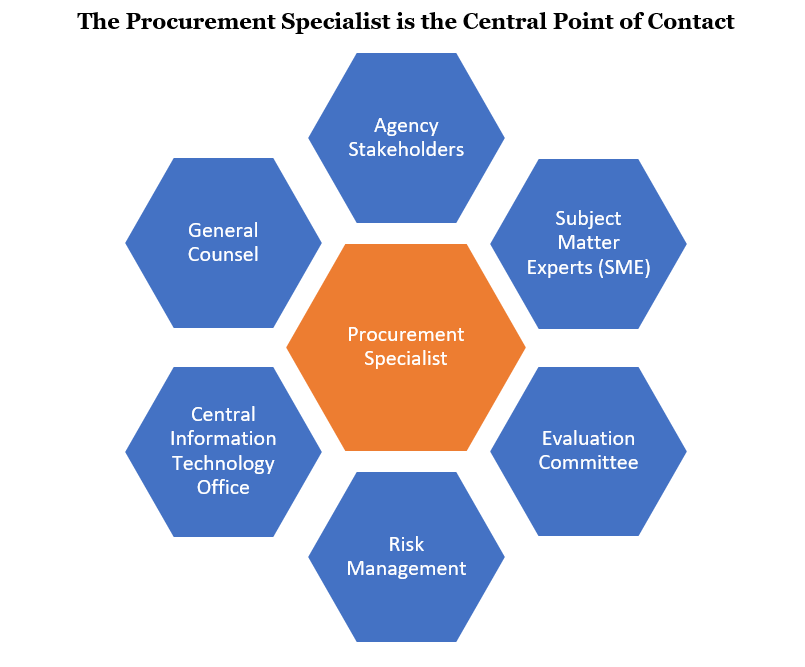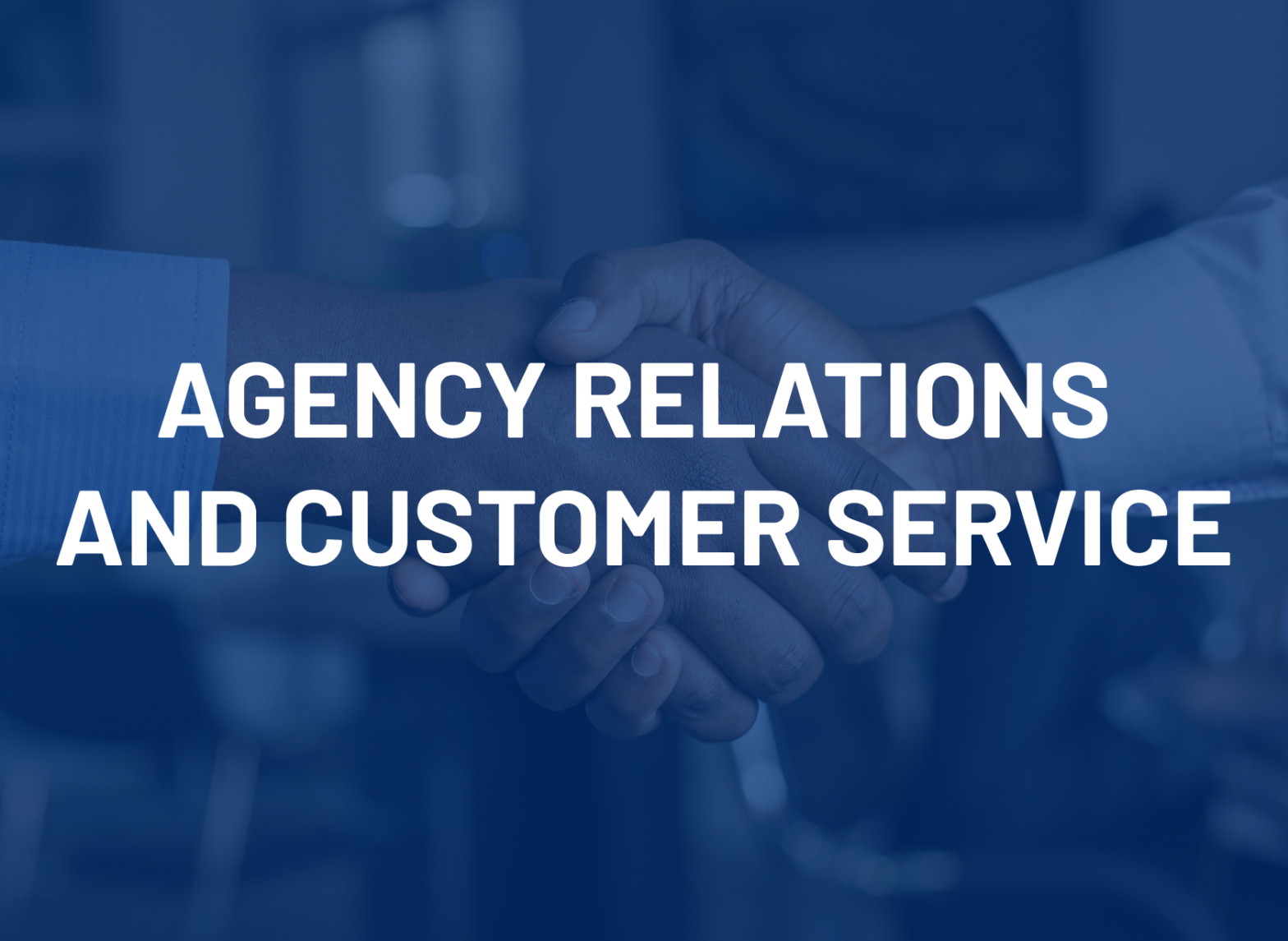A successful procurement relies on quality customer service from the procurement specialist. An important component of customer service is early collaboration between agencies. The initial interaction provides the procurement specialist the opportunity to establish trust and start a relationship through personal engagement with agency stakeholders. This is the best time for the specialist to set clear expectations, listen and respond to concerns, and build a partnership.

The procurement process requires interactions not only with agency stakeholders, but many other agencies for approvals, guidance, and collaboration. The procurement specialist is the central point of contact responsible for the coordination of many moving parts. Connections with many other agencies is an opportunity to represent the central procurement office and build stronger relationships.
Soft skills are vital elements in customer service. From empathy to responsiveness, these are tools to use when faced with a difficult situation or person. The procurement specialist will encounter many challenging interactions and scenarios. Below is an example of a difficult situation where customer service and soft skills are essential to ensuring the success of a procurement:
An agency has been developing a scope of work (SOW) for months. The need is mission critical and the agency “needed this yesterday”. It has been an all-hands-on-deck effort bringing in agency stakeholders, SME, and agency directors. The agency has poured all of its resources into creating a SOW quickly and believes it is ready to advertise as soon as possible. There has not been any collaboration with the central procurement office to prepare the SOW or consultation to ensure statutory requirements. The procurement specialist assigned to this project quickly realizes that it is lacking necessary components and needs to be revised to follow statutes. The agency, upon hearing this news, is irate. Suddenly the specialist is thrown into the middle of the tension.
What are the best practices in this situation? How would you handle it? Who would you get involved? What soft skills are needed for handling conflict and strong personalities? Of what value is knowing the culture and understanding organizational structure? How could early intervention and collaboration prevent this situation?
Below are some helpful tips specific to the procurement specialist that incorporate customer service aspects to the procurement process:
- Introductions and Kickoff Meeting: A great first impression is an important component and provides a starting point to establish trust and gain the respect of the stakeholders. A kickoff meeting is an opportunity to meet key staff and ensure early collaboration. Do research on stakeholders prior to the kickoff meeting. Collect contact information and list all of the members of your evaluation committee.
For an example of a great result of this practice, please see the 2019 George Cronin Bronze Award Winner – Minnesota.
-
- Have the user agency clearly define their request of the good or service.
- Present the procurement process and explain what steps are necessary, what reviews it needs to go through, who will be conducting those reviews, and the estimated timeline.
For more information, check out the NASPO Procurement Toolbox.
-
- Review statutes and regulations. If there is a conflict between the statutes and the user agency request do not say “no”, explain the “why” and then explore options.
- Establish a Project Charter or a Service Level Agreement (SLA) that serves as a mutual understanding of defined goals of the procurement, realistic expectations of each member of the committee, and a timeline that contains milestones of the project.
- Routine Check-Ins: Constant contact is essential and gets everyone on the same page throughout the project. Review disruptions in timelines. If, for any reason, there is a delay in the process be sure to let everyone know as soon as possible. Don’t wait for the agency to ask, “Where is…?”
- Training: Not everyone knows the procurement process, especially during periods of high turnover and transition of staff. Provide an opportunity to educate new members on the process start to finish. Procurement trainings for agencies should be regularly scheduled. NASPO’s ProcurementU is a great resource for trainings and information on all things procurement.
- Procurement Office Resources: Create monthly newsletters, a customer-facing website with published policy references, and advertisements for monthly trainings being held by the procurement office.
- Contract Management:
- Identify issues with current contracts, be responsive and have a solution to the problem. Intervene with agency and supplier and provide contractual information.
- Monthly Meetings: CPO and Agency Directors should establish scheduled dialogue to discuss current procurements, current contracts, and future procurements.
Refer to this great method for contract management by reading about Michigan’s 2019 George Cronin Gold Award.
- Enhance eProcurement Tools: An eProcurement system should be accessible and interactive. An agency can follow up on their due diligence as they get more acquainted with the system, freeing up time and speeding up the process for central procurement.
Please see the NASPO Webinar on eProcurement for more information.
Front-facing customer service provides an opportunity to create strong relationships and exemplifies value to your customers on a personal level. A new shift to emphasize soft skills and the effectiveness of productivity has emerged. Data analysis such as the Customer Service Indicator (CSI) measures customer satisfaction metrics and establishes this Key Performance Indicator (KPI).
Procurement Offices can establish a brand of quality and reputation to their customers by being responsive, courteous, and professional. Early and constant collaboration will greatly benefit production and create lasting partnerships. The practice of quality customer service is key for effective collaboration and successful procurements.
